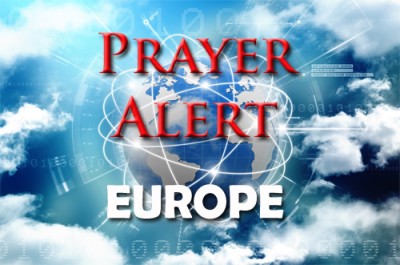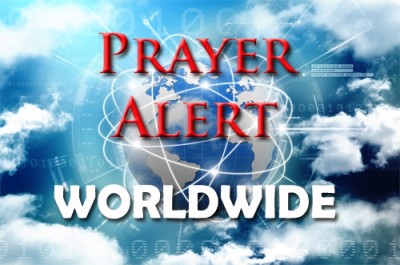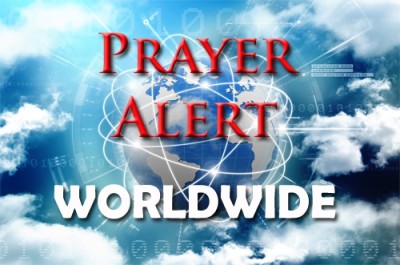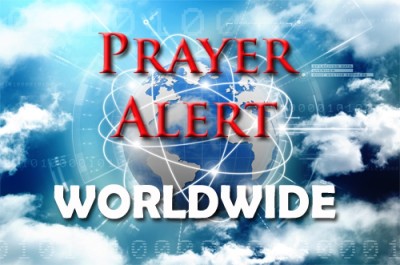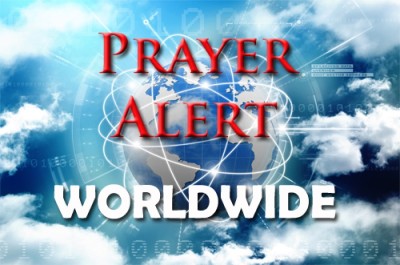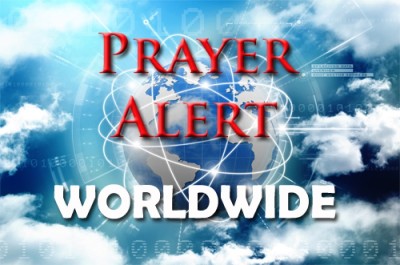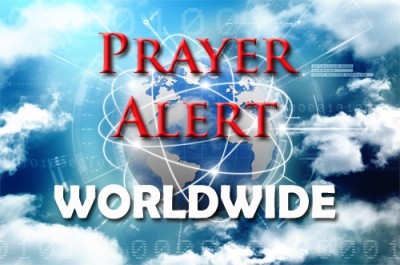Entrepreneur Fariba Vancor has been sentenced to six years in prison in what is considered Sweden’s largest environmental crime case. As CEO of the waste company Think Pink, Vancor oversaw the illegal dumping of hundreds of thousands of tonnes of toxic waste across nineteen sites. The court found that Think Pink, which was contracted by municipalities and private clients to manage waste, instead abandoned dangerous materials including PCBs, mercury, lead, and arsenic - threatening air, water, and soil quality. The judge described the company as operating like a pyramid scheme, with criminal negligence causing widespread environmental damage. Out of eleven individuals tried, ten were convicted: five received prison sentences and were ordered to pay approximately £19 million in damages. The case, which required years of investigation and 150 witnesses, resulted in a verdict nearly 700 pages long. Vancor has denied wrongdoing and may appeal.
President Donald Trump has said he will decide “within two weeks” whether the United States will become directly involved in the escalating tensions between Israel and Iran. His press secretary, Karoline Leavitt, cited the possibility of upcoming negotiations with Iran as a reason for delaying immediate action. Trump has often used two-week deadlines in past political decisions, many of which passed without resolution. While the administration is maintaining “strategic ambiguity,” it has reiterated concerns that Iran is closer than ever to developing a nuclear weapon - despite intelligence suggesting otherwise. New satellite imagery has confirmed significant damage to Iran’s nuclear reactor at Arak, intensifying global concern. The US remains publicly non-committal, with Leavitt declining to address hypotheticals about potential strikes or regime change. Diplomacy may yet gain ground as European and American officials pursue back-channel discussions with Tehran. However, Trump’s unpredictability has left many allies uncertain, and the global community is watching closely for any sudden shift in American policy toward military engagement.
In Chemmani, near Jaffna, police are now guarding the site of a newly unearthed mass grave, where so far 19 bodies (including three infants) have been discovered. This grim finding has reopened deep wounds for the Tamil community, long scarred by the brutal 26-year civil war. Allegations persist of mass killings and forced disappearances by the state; Amnesty International estimates up to 100,000 disappearances since the 1980s. Chemmani holds particular significance due to the 1996 rape and murder of schoolgirl Krishanthi Kumaraswamy, which led to the first meniton of mass graves in the area. Archaeologist Raj Somadeva, leading the excavation, says that less than 40% of the site has been examined; more graves may exist. Tamil families, desperate for justice, are actively supporting the investigation. It is hoped that the discovery of mass graves like the one found in Chemmani could finally bring closure for them.
On 15 June Catholics in Goma and across the Congo rejoiced as Floribèrt Bwana Chui Bin Kositi, a Congolese customs official, was beatified by Pope Leo XIV in Rome. Kositi was kidnapped and killed in 2007 after bravely refusing a bribe to allow rancid rice from Rwanda into the country - food which would have harmed vulnerable citizens. At just 26, he chose integrity over self-preservation, knowing the dangers of rejecting corruption. His family and community marked this occasion with pride, viewing his recognition as a powerful symbol of justice and moral courage. Local diocese leaders and churchgoers held prayer sessions and celebrations in Goma, where posters and commemorative cloths featuring his image honoured his legacy. Célestin Kanyabiriri, who led the beatification events locally, called Kositi’s example a divine call for financial honesty and spiritual integrity. Many regard him as a national hero and a martyr who upheld truth even to death.
In a northern region of Brazil known as the Equatorial Margin, where the Amazon River meets the Atlantic, a major environmental and political debate is unfolding. After researching the possibility of offshore oil reserves, the government decided to hold auctions to sell exploration rights in this area. President Lula da Silva, known for his environmental pledges, including a promise of ‘zero deforestation’ in 2023, now supports allowing drilling ‘to fund our energy transition’ and bolster the economy. Critics argue this contradicts his public stance and undermines Brazil’s credibility as it prepares to host COP30. Environmental organisations and even the federal prosecutor’s office challenged the oil auctions, citing inadequate environmental reviews and community consultation. Despite their efforts, they went ahead, with major corporations like Chevron and Petrobras securing exploration rights. Brazil’s environmental agency had initially rejected drilling permits, but its decision was overruled by its own director under government pressure. The outcome reflects Brazil’s struggle to reconcile economic needs with ecological stewardship.
Australia: vital defence pact under threat
20 Jun 2025The critical Aukus defence pact, agreed by Australia in 2021 with the USA and UK, to acquire nuclear-powered submarines, faces uncertainty as Donald Trump’s administration reviews its alignment with the ‘America First’ agenda. Valued at over $230 billion, Aukus promises Australia a strategic leap in military capability. However, some US officials are sceptical about the value of sharing its premier defence technology, and have cast doubt on allies ‘pulling their weight’. Australia's leaders are publicly calm, but anxieties are growing. Some warn that the deal was always fragile, while others urge Australia to reassess its dependence on the USA. With the Pentagon citing domestic submarine shortages and economic priorities, questions loom over whether Australia will ever receive the promised Virginia-class subs. Despite the turbulence, the alliance's strategic value in countering China remains. Experts argue that Australia could still defend itself independently, given its geography and resources, but emotional ties to the USA and fear of abandonment persist in national defence thinking.
A draft peace agreement has been reached between Rwanda and the Democratic Republic of Congo, aiming to end decades of deadly conflict in eastern DR Congo. Mediated by the US and Qatar, the deal outlines disengagement, disarmament, and conditional integration of armed groups, including the M23 rebels — whose recent territorial gains have displaced hundreds of thousands and cost many lives. Rwanda denies backing the M23, while accusing DR Congo of supporting the FDLR, a militia linked to the 1994 Rwandan genocide. The deal includes provisions for a joint security mechanism to prevent future hostilities and could pave the way for substantial Western investment in the mineral-rich region. However, significant uncertainties remain: Will the M23 fully withdraw? Will Rwanda acknowledge its troop presence and pull back? Can the FDLR be disarmed effectively this time? A formal signing is expected next week, witnessed by US Secretary of State Marco Rubio. Observers are cautiously hopeful, recalling past failed accords. True peace will require political will, accountability, and lasting humanitarian access for displaced civilians.
30 Days of Prayer for the Church in Israel and Iran
I want to personally thank you so much for praying for Israel and the Jewish people worldwide this past Pentecost Sunday! Together with millions around the world we cried out for the salvation of Israel, for Jews, Arabs and Internationals in the land, and for the peace of Jerusalem (Psalm 122:6).
I am sensing a strong burden for the Middle East in the light of the ongoing crisis there and would like to invite you to continue to uphold that region and, in particular, the Christian Church there.
We have prepared some daily prayer pointers focusing on real-life people across the region who are serving God as evangelists, church-planters and pastors. Many of these believers* have sacrificed much for the Gospel and we want to uphold them at this critical time of challenge and opportunity for the Church there!
As well as daily prayer pointers, we are also bringing testimonies, answers to prayer and background story podcasts, to give you fresh perspectives that will inspire and encourage you in your prayers!
Every prayer counts! – Together with our IPC family, and in partnership with some underground house church movements, we are mobilizing 5,000 prayer ministries from 150 nations to pray for Jesus followers in Israel and Iran. Among those committed to pray are 1.5 million Muslim background Christians who are joining us! I really hope that you can be part of this tsunami of prayers at this significant time.

Will you take 5 minutes or more, a day, for a month - to pray for breakthrough for Jesus followers in Israel and Iran?
Sign up to receive an email with each day’s Prayer Pointers and Resources - it's free!
The mission of God is fueled by the prayers of the faithful! Prayer is what keeps us connected to the voice of God. Prayer is where the impossible happens! - As my good friend Brian Alarid shares,
“Without prayer mission loses its power; without mission prayer loses its purpose – when you combine prayer with mission it releases the power of the Holy Spirit to transform people, cities and nations”
Let’s join together, praying for these Jesus followers in both Israel and Iran, asking God to release His power, truth and love this next month!
May the Lamb receive the due reward for His suffering throughout the Middle East!
Dr Jason Hubbard - Director
International Prayer Connect
www.ipcprayer.org
Pray - Connect - Grow - on the Interseed App
* Some names have been changed to preserve their safety

